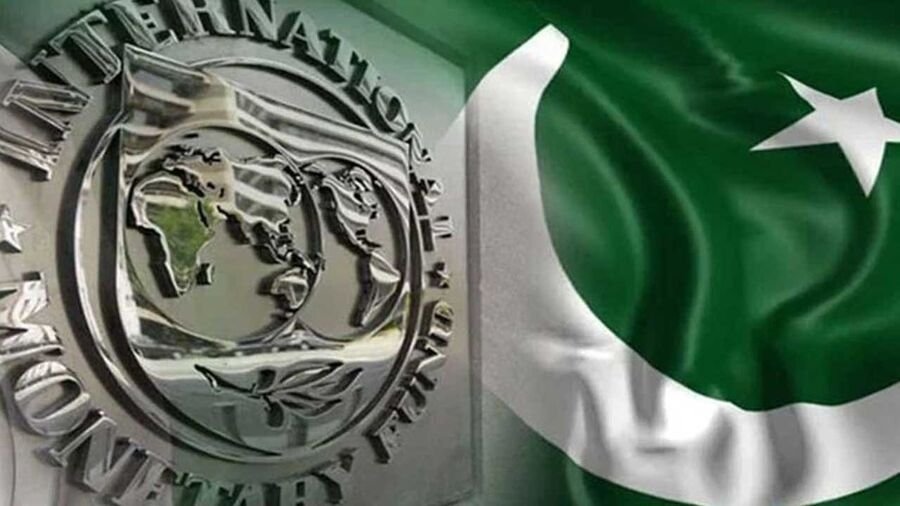Islamabad, 28 August 2024 (TDI): The government of Pakistan received just $426 million from foreign lenders in July, and an official report on the disbursement of foreign loans confirmed that the administration was unable to acquire $9 billion in loan rollovers last month.
In its monthly disbursement report, the Ministry of Economic Affairs disclosed that no loans were obtained from bilateral creditors or international commercial banks—resources that the government is desperately attempting to access in order to obtain the foreign cash it needs to survive.
A $7 billion bailout package must be approved by the International Monetary Fund (IMF) in exchange for the rollover of cash deposits from China, Saudi Arabia, and the United Arab Emirates, as well as additional loans from foreign commercial banks.
$5 billion in debt from Saudi Arabia and $4 billion in debt from China are included in the federal government’s rollover plan, according to the Ministry of Economic Affairs. On the balance sheet of the central bank, however, is the $3 billion UAE deposit.
None of the loan amounts were disbursed last month, according to the report.
The $7 billion plan was originally supposed to be approved by the IMF on August 30, but it was postponed because the government couldn’t get the required loan rollovers. This is the first public acknowledgement that these deals have not materialized.
Pakistan’s ability to repay its foreign and domestic debts on time is a prerequisite of the IMF’s new Extended Fund Facility (EFF).
Also read: IMF forecasts 3.5% Growth for Pakistan’s Economy in FY25
The $4 billion commercial loan and the $12 billion cash deposit rollover are essential to the IMF’s plans for debt sustainability, but the government and the IMF have both shied away from confronting the urgent need for debt restructuring.
There were reports that Saudi Arabia would grant a $1.2 billion oil finance facility and accelerate Pakistan’s $5 billion rollover request provided the two countries finalize the sale of 15% of the Reko-Diq mining project by early September.
The $1.2 billion oil finance facility is not part of the government’s annual $19.2 billion total borrowing plan for the current fiscal year. The facility has already been sought by Saudi Finance Minister Muhammad Al-Jadaan, though, according to Finance Minister Muhammad Aurangzeb.
Although he did not provide a specific date, the finance minister said last week that the IMF might approve the new package for loan rollovers in September.
The acceptance of the $7 billion IMF contract could become more complicated for the federal government if it is delayed any more. The administration has to contend with the further obstacle of an expected deficit in Federal Board of Revenue (FBR) tax collection, even after enacting a record-breaking Rs1.8 trillion in new taxes.
Before accepting the loan package, the lender may want a mini-budget to make up for any deficits in tax collection if the IMF clearance is postponed until October.
The FBR tax collection target for this month is Rs898 billion, as established by the government. In just four days, or an average of Rs 81 billion per day, the FBR still has to collect Rs 323,3 billion, as of Tuesday, having only collected Rs 575 billion.
Sources claim that internal FBR assessments point to a potential shortfall of about Rs80 billion, which the FBR is already attempting to make up by obtaining credit from commercial banks.
Rashid Langrial, a dependable official, has been appointed by Prime Minister Shehbaz Sharif to lead the FBR. This will be Langrial’s first significant test to see if it can reach the goal and live up to PM’s Office standards.
Also read: Strategies to Enhance Pakistan’s Revenue Generation Capacity Discussed
The World Bank loaned $132.4 million last month, of which $11 million went to the National Transmission and Dispatch Company (NTDC), $80 million to two projects related to floods in Sindh, and $26 million to an agriculture project in Punjab, according to the Ministry of Economic Affairs report.
The Pakistan Multi-Mission Satellite project received $97 million from China, while the Asian Development Bank (ADB) donated $52 million for other programs. Furthermore, the nation obtained $128 million through the expensive Naya Pakistan Certificates.
Nevertheless, there were no payments made in comparison to the foreign commercial banks’ yearly planned budget estimations of $3.8 billion. Pakistan intends to borrow $1 billion in fiscal year 2022 through sovereign bonds, comprising $700 million through Green bonds and $300 million through Chinese Panda bonds.















